Do you think your backyard is safe for your dog? Think again—it may not be as safe as you believe. A number of infections can threaten your canine pal, and some have the potential to cause life-threatening disease. Leptospirosis is one such infectious disease, and your dog can pick it up from pond or lake water—or a puddle in your backyard. Our Fairfax Veterinary Clinic team shares details about this threat that every dog owner should know.
What is leptospirosis?
Leptospirosis is caused by a spirochete (i.e., spiral-shaped) bacterium, Leptospira interrogans, that is carried and shed by dogs and wildlife species. Leptospira bacteria, which are shed in the urine, live in water and warm, moist soil, and typically enter a dog’s body through the mucous membranes in their mouth, eyes, or nose when they contact a contaminated water source. Once inside a dog’s body, the bacteria multiply in the bloodstream and tissues, including the kidneys. Leptospirosis can lead to serious illness, including acute kidney and/or liver failure.
Leptospirosis is not only a threat to your dog, but also to your family. It is a zoonotic disease, which means it can be passed from animals to humans. Pet owners can contact Leptospira bacteria shed in their dog’s urine, or become infected by a water source that has been contaminated by urine from wildlife such as mice, squirrels, raccoons, foxes, and opossums. Many human leptospirosis cases occur after people have been swimming in a lake or pond.
Which dogs are at risk for contracting leptospirosis?
Any dog who could possibly contact contaminated water is at risk of contracting leptospirosis. Dogs who are at increased risk of infection include those who:
- Have access to ponds, lakes, streams, or other water sources
- Go camping or hunting with their owners
- Have contact with wild animals
- Are exposed to infected dogs, such as in a shelter
As suburban areas further encroach on natural habitats, wild animals are more likely to wander into backyards, and may possibly contaminate environments pet owners assume are safe. This means virtually all dogs are at risk of contracting leptospirosis.
What are leptospirosis signs in dogs?
During early infection, disease signs may be vague and nonspecific, including:
- Lethargy
- Decreased appetite
- Weight loss
- Fever
As leptospirosis progresses, it causes acute kidney and/or liver failure in affected dogs, which can be life-threatening. Organ failure signs include:
- Vomiting
- Diarrhea
- Increased or decreased urine volume
- Abdominal pain
- Jaundice
- Muscle pain and weakness
- Breathing difficulty
- Blood clotting problems
If your dog displays leptospirosis signs, have them evaluated by our veterinary team immediately, as the disease can quickly progress.
How is leptospirosis diagnosed in dogs?
If leptospirosis is suspected, a blood sample will be sent to a veterinary laboratory to test for Leptospira bacteria or antibodies. After a positive test, further diagnostics will be required to determine the disease’s extent and severity. Blood work will be performed to evaluate the dog’s kidney and liver function, as well as their overall health. A urinalysis will provide additional information about kidney function.
If your dog is diagnosed with leptospirosis, you must take precautions to keep your family safe. During your dog’s treatment period, designate a potty area where you can easily clean up urine. Wear gloves when cleaning up after your dog, and ensure your family members wash their hands after petting or handling them.
How is leptospirosis treated in dogs?
Since leptospirosis is a bacterial infection, antibiotic therapy forms the basis of treatment. Additional treatment focuses on supporting a pet’s failing kidneys, liver, or other organs, and may include:
- Intravenous fluids to maintain normal fluid, electrolyte, and acid-base balance
- Liver-supportive medications
- Anti-vomiting medications
- Stomach protectants
- Nutritional support
- Dialysis
Treatment is typically successful, and infected dogs can make a full recovery. Without treatment, the infection will progress and cause death.
How can dog owners prevent leptospirosis?
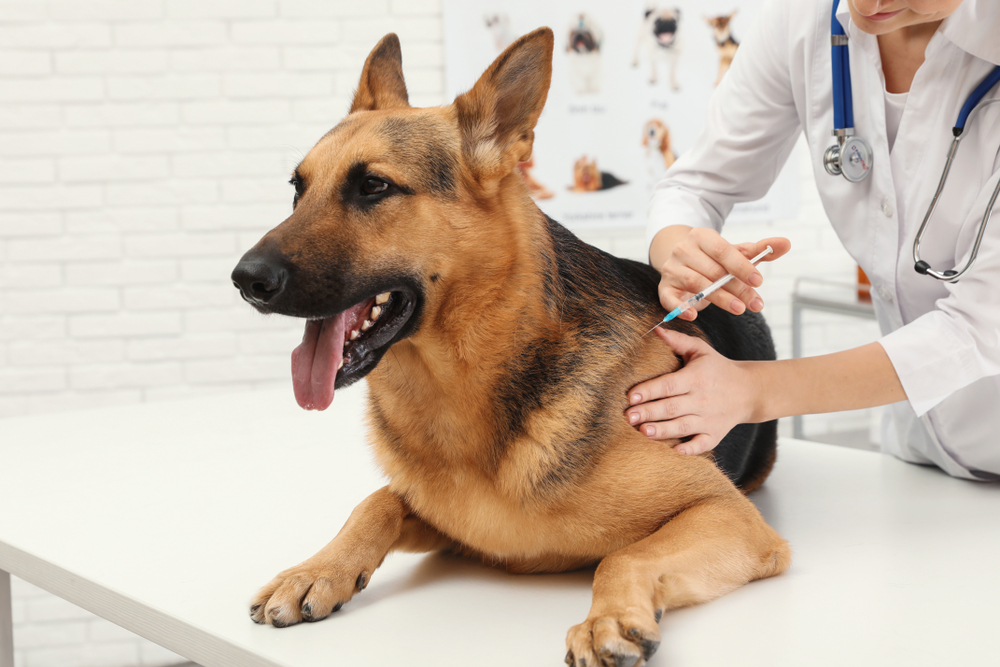
Fortunately, protecting your dog from leptospirosis is as easy as keeping their vaccines up to date. While the leptospirosis vaccine is considered non-core, or optional, most dogs are at risk for the infection, and should receive the vaccine. Our Fairfax Veterinary Clinic team will assess your dog’s risk and recommend the best vaccines for their lifestyle.
In addition to regular vaccination, you can prevent leptospirosis infection in your dog by taking the following precautions:
- Don’t allow your dog to drink from an outdoor water source, such as a pond, lake, stream, or puddle.
- Don’t allow your dog to swim in ponds, lakes, or streams.
- Don’t allow your dog to wander from your side when you’re camping or hunting.
- Do prevent contact with wild animals.
By lowering your dog’s exposure risk and ensuring their leptospirosis vaccine is up to date, you can significantly reduce the likelihood of infection.
Is your canine pal due for their regular vaccines, including leptospirosis? Give us a call, and we will help you keep them infection-free.




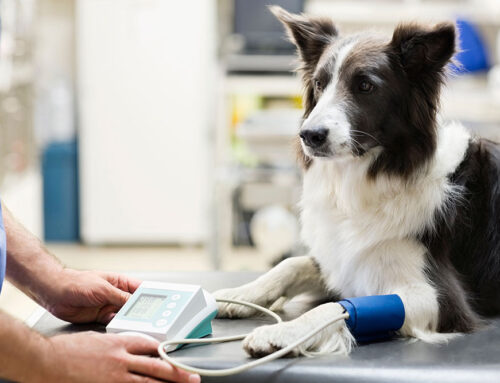
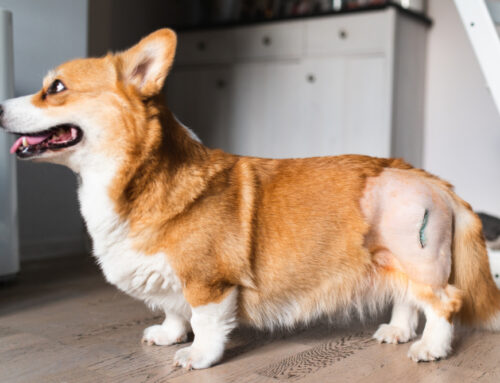
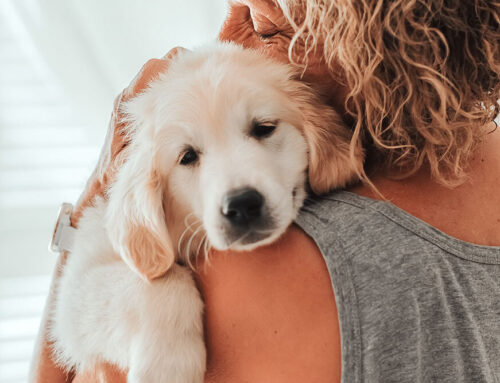
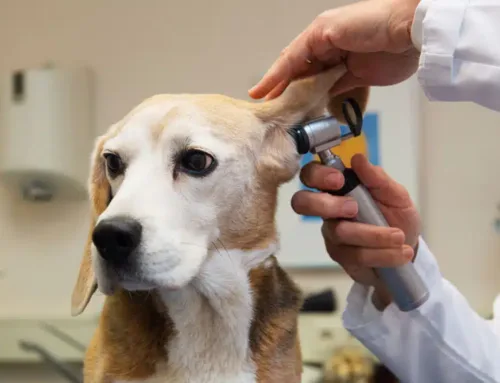
Leave A Comment